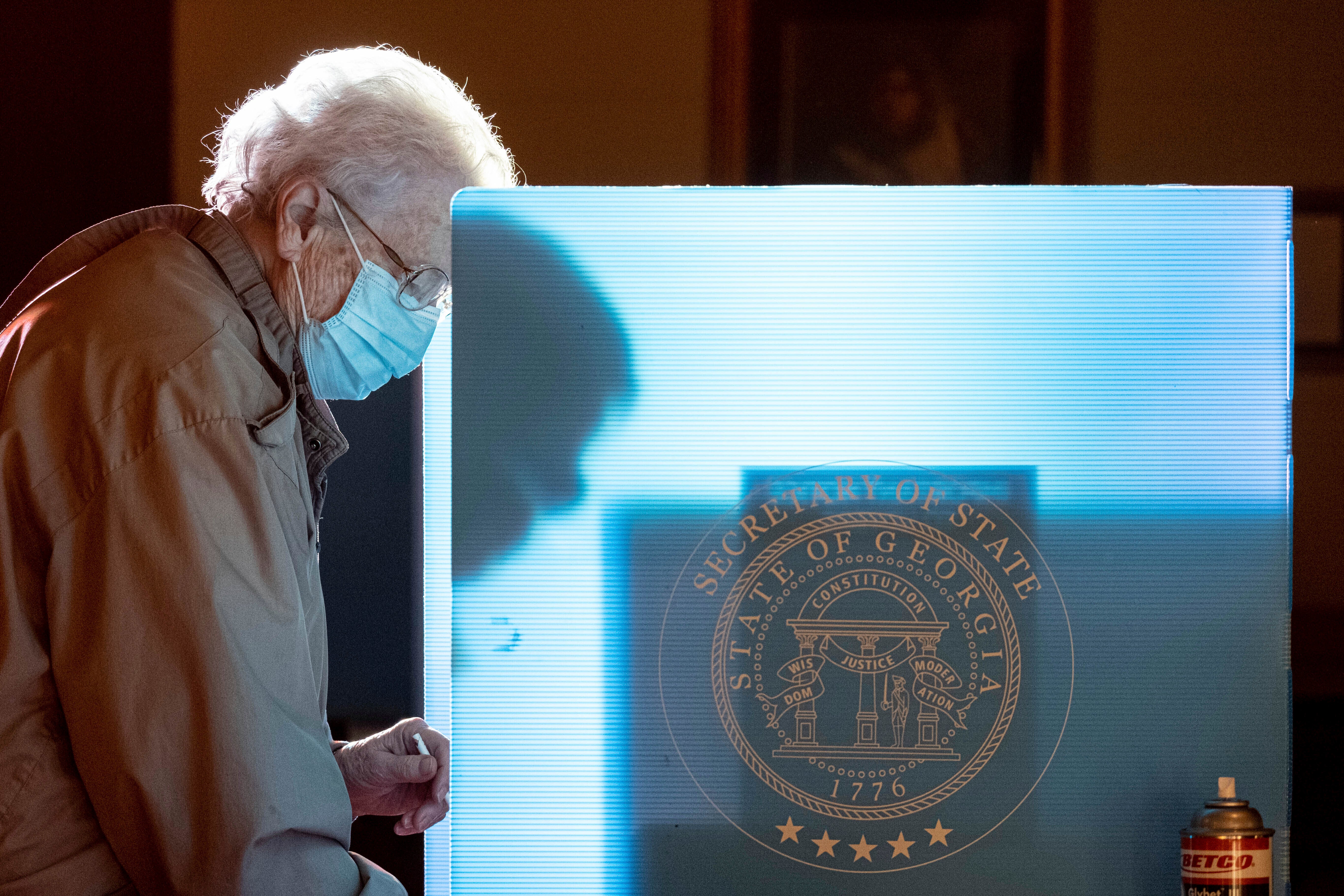Parts of sweeping new Georgia election law debated in court
Voting integrity activists argue several parts of Georgia’s new election law criminalize normal election observation activities

Your support helps us to tell the story
From reproductive rights to climate change to Big Tech, The Independent is on the ground when the story is developing. Whether it's investigating the financials of Elon Musk's pro-Trump PAC or producing our latest documentary, 'The A Word', which shines a light on the American women fighting for reproductive rights, we know how important it is to parse out the facts from the messaging.
At such a critical moment in US history, we need reporters on the ground. Your donation allows us to keep sending journalists to speak to both sides of the story.
The Independent is trusted by Americans across the entire political spectrum. And unlike many other quality news outlets, we choose not to lock Americans out of our reporting and analysis with paywalls. We believe quality journalism should be available to everyone, paid for by those who can afford it.
Your support makes all the difference.Voting integrity activists argue that several parts of Georgia s new election law criminalize normal election observation activities, while the state asserts that those provisions reinforce previous protections and are necessary for election security.
A federal judge was hearing arguments Thursday on the activists’ request that he bar election officials from enforcing those provisions.
Georgia's overhaul of election rules, like similar measures enacted this year in other GOP-controlled states, has received broad criticism from Democrats and others who say it makes it harder to vote, particularly for voters of color.
There are eight federal lawsuits challenging aspects of Georgia's new law, including one filed last week by the U.S. Department of Justice. They mostly target parts of the law that critics say threaten voting rights. The hearing Thursday was focused narrowly on a handful of provisions and wasn't addressing the most commonly criticized parts of the law.
The challenged provisions mostly have to do with monitoring or photographing parts of the election process.
“These laws have the purpose and the effect of severely obstructing election transparency, degrading election security, and intimidating voters and members of the press who serve the vital role of providing citizen oversight of election administration,” the election integrity activists said in a court filing.
Lawyers for the state countered that much of the activity in question was already illegal and that the new law provides needed clarification.
The Georgia First Amendment Foundation has filed a brief in the case, saying the new law "has imposed new and dangerous restrictions on news gathering that threaten the ability of the public and press to remain informed about Georgia elections.”
One challenged provision makes it a felony to intentionally observe a voter "in a manner that would allow such person to see for whom or what the elector is voting.” Given the size, brightness and upright position of the state's touchscreen voting machines, “it is hardly possible to enter a polling place in Georgia without potentially committing this felony,” the activists say.
Lawyers for the state argue that the new provision applies to intentional efforts to see someone's votes, not accidental observation.
A second provision prohibits monitors and observers from communicating any information they see during absentee ballot processing “to anyone other than an election official who needs such information to lawfully carry out his or her official duties.” Another makes it a misdemeanor for monitors and observers to estimate the number of absentee ballots cast or any votes on the absentee ballots cast. These two provisions are attempts to silence critics and limit unfavorable press coverage of how elections are run, the activists say.
State lawyers say it was necessary to make sure no vote counts would be disclosed before the polls close since the new law allows absentee ballots to be scanned in the weeks before an election.
A provision that prohibits the photographing of the face of a touchscreen voting machine “while a ballot is being voted or while an elector's votes are displayed on such electronic marker” or the photographing of a voted ballot would prevent routine news coverage of voting and counting of ballots, the activists argue.
Photography was already restricted inside polling places, and the new law simply provides a specific penalty, state lawyers argue.
In response to the state's arguments, the activists argued in a court filing that state lawyers repeatedly misstated what the new law actually does and illogically argued at times that it adds nothing to existing law while also saying it serves a compelling state interest.
The activists are also challenging an absentee ballot application deadline 11 days before an election. The deadline for the certification of election results is 11 days before a runoff, meaning people may not be able to get an absentee ballot for a runoff election, the activists argue.
Lawyers for the state said it's often clear as early as election night that there will be a runoff and that voters don't have to wait for results to be certified to request an absentee ballot.